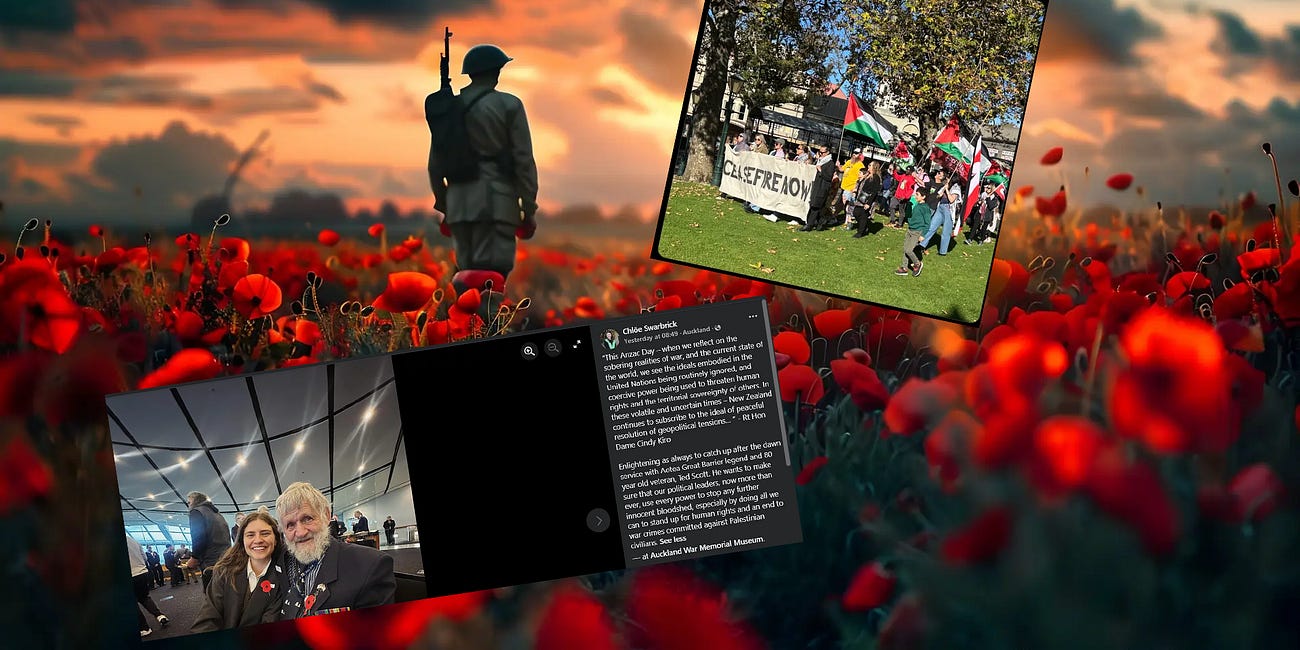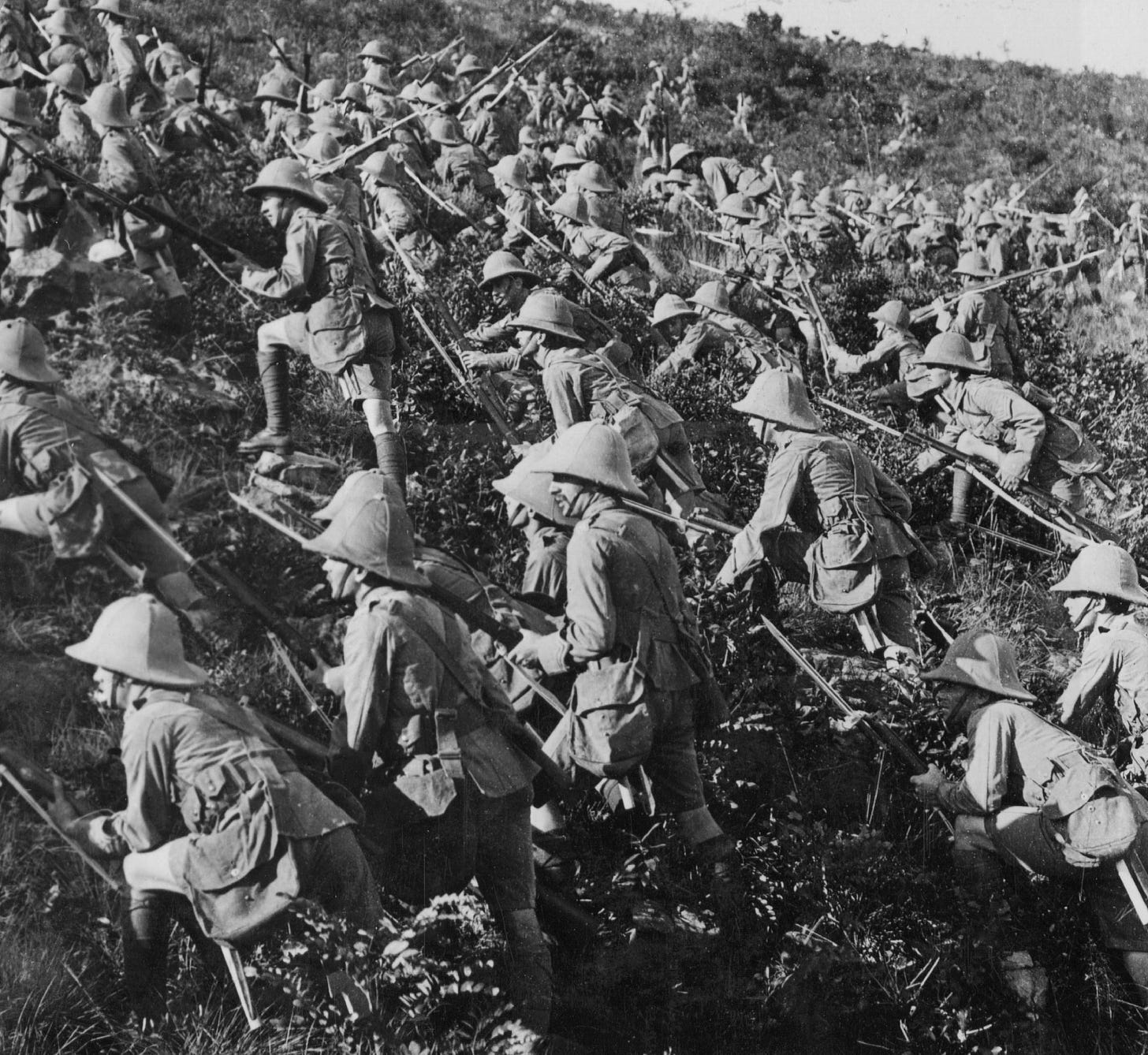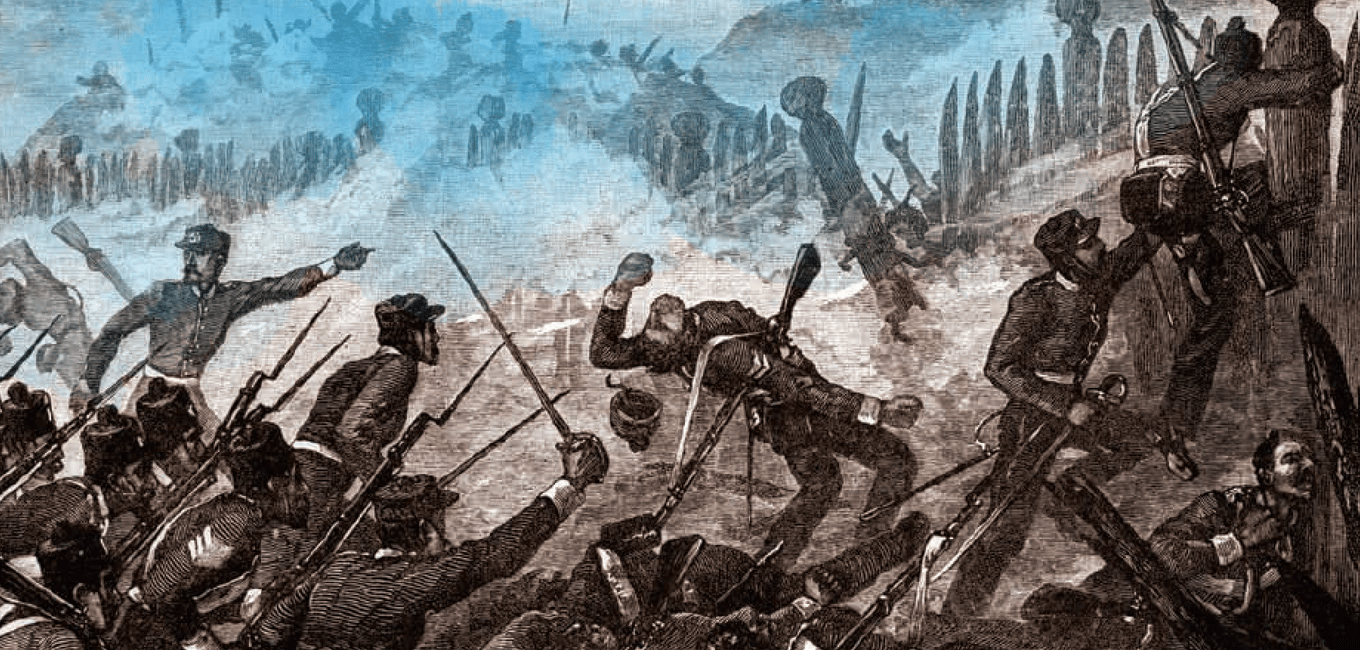Not long ago, I wrote about the Auckland War Memorial Museum selling rainbow poppies in the lead-up to Anzac Day. They called it a gesture of “inclusivity”. I wonder if they realize that homosexuality was illegal during both World Wars. Men caught engaging in same-sex relationships were dishonourably discharged, jailed, or worse. To now retroactively insert modern identity politics into the legacy of the Anzacs is not just misleading. It is a distortion of history.
ANZAC Day hijacked
Matua Kahurangi
·
26 Apr

ANZAC Day, a solemn occasion dedicated to remembering the sacrifices of Australian and New Zealand soldiers, has once again been hijacked by political groups pushing their own agendas. This year, several public figures decided to shove their own causes into the spotlight, and it pissed off a lot of people.
Read full story
That same mentality is now creeping into our national day of remembrance.
Anzac Day is under attack. A day that for generations has been set aside to honour the bravery and sacrifice of New Zealanders and Australians who served and died in war is now being quietly rewritten by politicians who seem more interested in ticking boxes than preserving meaning.
The Anzac Day Amendment Bill, currently before Parliament, proposes to expand the scope of the 25 April commemoration. Instead of focusing on the soldiers who faced bullets and bayonets at Gallipoli and in two World Wars, the Government now wants to include those who served in any conflict. That includes the New Zealand Wars, United Nations peacekeeping missions, training accidents, and even civilians involved in “warlike operations”. They’ll probably try to throw in something like the so-called 'war on trans' next.
Matua Kahurangi
·
26 Apr

ANZAC Day, a solemn occasion dedicated to remembering the sacrifices of Australian and New Zealand soldiers, has once again been hijacked by political groups pushing their own agendas. This year, several public figures decided to shove their own causes into the spotlight, and it pissed off a lot of people.
Read full story
That same mentality is now creeping into our national day of remembrance.
Anzac Day is under attack. A day that for generations has been set aside to honour the bravery and sacrifice of New Zealanders and Australians who served and died in war is now being quietly rewritten by politicians who seem more interested in ticking boxes than preserving meaning.
The Anzac Day Amendment Bill, currently before Parliament, proposes to expand the scope of the 25 April commemoration. Instead of focusing on the soldiers who faced bullets and bayonets at Gallipoli and in two World Wars, the Government now wants to include those who served in any conflict. That includes the New Zealand Wars, United Nations peacekeeping missions, training accidents, and even civilians involved in “warlike operations”. They’ll probably try to throw in something like the so-called 'war on trans' next.
Diluting the meaning
Anzac Day has always had a clear and solemn purpose. It was never meant to be a catch-all memorial. It is about the Anzacs - the blokes who were sent halfway across the world to fight and die in foreign fields. The ones who never came home. It is about a shared national trauma that helped shape who we are.
Now, that focus is being deliberately blurred. The new bill wants to make the day “more inclusive”, a vague and overused phrase that often signals the beginning of the end for anything traditional. Once we start adding every kind of military service to Anzac Day, where does it stop? Do we eventually include police officers? Firefighters? Volunteers? trans activists?
Not all service is the same. Not all of it belongs on Anzac Day.

The New Zealand Wars do not Belong here
Yes, the New Zealand Wars are an important part of our history. Yes, they deserve recognition. But trying to force them into Anzac Day is historically dishonest and politically loaded.
The wars fought on our own soil between the Crown and Māori iwi were civil and colonial conflicts. They were not overseas military campaigns. Pretending they fit into the same category as the Anzac landing at Gallipoli or the trenches of the Western Front is absurd. It is an attempt to reshape history through a modern political lens.
If we want a public holiday to remember the New Zealand Wars, then let us debate that. But do not use Anzac Day as a dumping ground for every cause that someone thinks has been overlooked.

A slippery slope of commemoration
The proposed law also wants to include New Zealanders who served in UN missions, those who died in training exercises, and civilians who supported war efforts. Many of these people deserve thanks and respect. But this is Anzac Day. It is not a national military appreciation day. There is a difference.
This kind of “inclusive” expansion is exactly how traditions lose their meaning. You start by broadening it slightly, then a bit more, and suddenly it means nothing. Everyone is remembered, which means no one is remembered properly.
Leave it alone
New Zealand has very few days of true national unity. Anzac Day is one of them. It is sacred not because it glorifies war, but because it remembers the cost of it. It reflects the pain, sacrifice, and identity of a country that sent its young people into unimaginable horror - and remembers them with silence, not spin.
The Government should not be tampering with that. If it truly believes other conflicts need more recognition, then it should create a new day for that purpose. Do not hijack Anzac Day to push a modern agenda.
Because if we try to remember everything on one day, we risk remembering nothing properly.
Anzac Day stands for something real and specific.
Matua Kahurangi is just a bloke sharing thoughts on New Zealand and the world beyond. No fluff, just honest takes. He blogs on https://matuakahurangi.com/ where this article was sourced.


8 comments:
Well Done Matua . Thank you . Only 5 days left to put in a submission to Parliament , closing on next Thursday 22nd May.
PM Luxon has NO ability to read the room or understanding the NZ physique , surely Paul Goldsmith or someone in Parliament could have initiated a press release .
The problem with reserving Anzac Day for the World Wars is that there is now hardly anyone still alive who was there. When I was a young boy, there were still plenty of World War veterans (including WW1) running around who acted as a bridge for me to connect to events that happened 40 years before I was born. For the young today, there is no such living connection and the commemoration becomes a vague abstraction rather than something 'real' that they can relate to.
Well forget the need for living veterans. What about HISTORY ? Why should the young be limited to "living" people - or rainbow people or whatever ! Time they had a LIVING experience of WAR.... [coming ready or not.]
Why bother with any of it. The country these people fought and died for no longer exists.
It's now called Aotearoa.
It's always been a bit of a worry to me how much ANZAC Day focuses on Gallipoli. Our servicemen fought and died on a lot of other battlefields, and to much greater effect than Gallipoii. And I get tired by the tedious old line that our nation was "forged" in the fire of that campaign. No it wasn't. It was an Imperial Duty, for King and Country, and the country was certainly not New Zealand. Our real appreciation should be reserved for those who gave their lives to maintain our independence and democracy in the face of foreign threats. Gallipoli falls a long way short of that ideal. If the new legislation reinforces that sentiment then bring it on.
Having visited some of the WW1 and WW2 battlefields, I better understand the conflicts and what and why our parents and grandparents went through so that we could live in a free democracy.
Luxon, no more weasel words - ANZAC day needs to be protected and respected - stop this nonsense now.
Meanwhile, Luxon continues to support Ardern's policy of destroying democracy from within.
Is this diversity being encouraged in Australia ? or is it just our distorted woke leaders ?
Jones Boy @ 5:06
" Our real appreciation should be reserved for those who gave their lives to maintain our independence and democracy in the face of foreign threats."
One hopes this same sentiment is not repeated albeit with "foreign threats" replaced with "internal threats"
I dont like our chances.
‘New Zealand Wars’ my bum!
As outgoing Governor-General, Lord Bledisloe, reminds us in his 1935 farewell address: “In the Kingdom of the Blind, the one-eyed man is King. And he that does not know his own history is at the mercy of every lying windbag.”
Neither "Land Wars" nor “Maori Wars” accurately explain the basis of the conflicts that race mongers now wish to commemorate in order to further stoke anti-White and race separatist sentiments.
Nor were they “New Zealand Wars.”
These misnomers have been coined and propagated to imply the Crown made unjust war on a collective Maori in order to “steal” their land.
The war was in fact between the Crown and specific tribes, who challenged the Crown and lost.
The Crown then punished these groups with land confiscations as it had earlier warned it would do if they didn’t lay down their arms and cease their provocations.
The tribes on which the Crown waged a series of localised wars between 1863 – 1878 were predominately based in the centre of the North Islam (Tainui, Tuwharetoa, Tuhoe) and had never signed the Treaty of Waitangi in the first place.
Under the legal doctrine of privity of contract, only the parties to an agreement are bound by it or can claim its protection in the event of a breach. So no Treaty breach there.
The Tainui tribes set up a "King" as a rival sovereign to the Crown and drew a handful of other tribes outside the immediate locality who HAD signed the Treaty into joining them, such as elements of Taranaki’s Te Atiawa.
The Kingite Movement was thus made up of aggressive challengers to the Crown's sovereignty and rebels against it.
The ensuing wars were brought on by a minority of Maori Chiefs who saw colonisation as a threat to their mana and power, especially as their people had begun to exit their tribal lands in order to live independently close to the larger cities and towns.
A plan was hatched by the dissident chiefs to get rid of the Treaty, British Sovereignty, law and order, and to drive the Pakeha out once and for all.
"Sovereignty Wars" is the correct description of these conflicts, since they were undertaken both to extend the Crown's sovereignty over those who'd never acknowledged it, and to bring those who'd rebelled against it to heel.
Post a Comment
Thank you for joining the discussion. Breaking Views welcomes respectful contributions that enrich the debate. Please ensure your comments are not defamatory, derogatory or disruptive. We appreciate your cooperation.